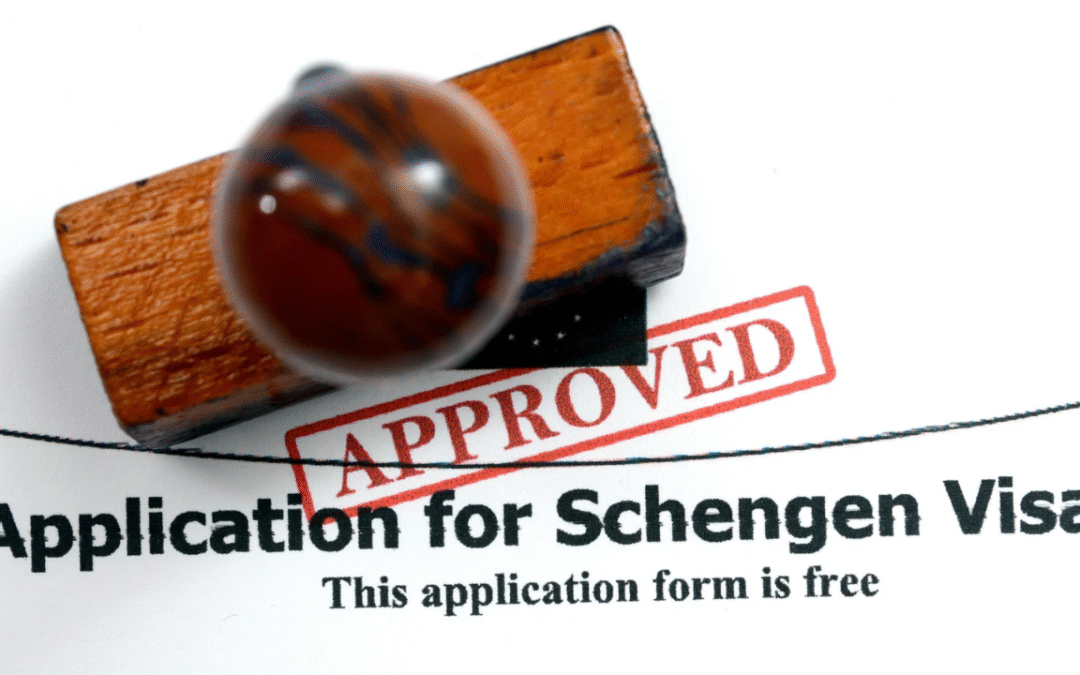Dreaming of strolling through the streets of Paris, admiring Amsterdam’s canals, or exploring Rome’s ancient ruins? For many Nigerians, the Schengen visa is the golden ticket to Europe — but here’s the hard truth: a large number of applications get rejected every year due to small, avoidable mistakes.
If you’re serious about traveling to Europe for tourism, business, family visits, or events, you need to understand the Schengen visa process deeply. This article breaks down the most common mistakes Nigerians make when applying — and how to avoid them — so you can increase your approval chances.
At Loyalty Travels & Logistics Ltd, we’ve helped hundreds of Nigerians secure Schengen visas. We know what works and what doesn’t. Let’s guide you.
Submitting Incomplete or Incorrect Documents
This is the number one reason for refusals.
Every Schengen country has slightly different embassy requirements, but generally, you need:
A valid international passport (with at least two blank pages and valid for at least 3 months after your intended return).
Fully completed and signed Schengen visa application form.
Passport-sized photos meeting Schengen standards.
Detailed travel itinerary (flight bookings, hotel reservations).
Proof of financial means (recent bank statements showing enough funds).
Travel insurance covering at least €30,000.
Proof of employment, leave letter, or business registration (if self-employed).
Invitation letter (if visiting family or friends).
Tip: Double-check the checklist for the country you’re applying to. Even minor missing details (like forgetting to sign a form or providing blurry copies) can trigger rejection.
Weak or Suspicious Financial Evidence
Embassies want to know you can finance your trip — and won’t become a burden or overstay.
Provide 3–6 months of bank statements, showing regular income flow.
Avoid sudden, large deposits (which raise suspicion of “borrowed” funds).
Show additional evidence of financial ties, like employment payslips, business income, or property ownership.
Remember, if you’re sponsored by someone, their bank statements plus a formal sponsorship letter are essential.
Unclear or Inconsistent Travel Purpose
Is your reason for visiting Europe clear and well-supported?
For tourism: Show a detailed itinerary, confirmed hotel bookings, and flight reservations.
For business: Provide an invitation letter from the company or organization you’re visiting.
For family visits: Include an invitation letter, copy of their passport/residence card, and proof of relationship.
Warning: Submitting conflicting information (for example, claiming tourism but showing no bookings or plans) is a major red flag.
Ignoring Mandatory Travel Insurance
Many applicants underestimate this.
Every Schengen visa application must include travel medical insurance that:
Covers at least €30,000 in medical, emergency, and repatriation costs.
Is valid in all 27 Schengen countries.
Covers your entire travel period.
Without this, your application won’t even be processed.
Poor Travel History or Weak Ties to Nigeria
First-time travelers, listen up.
Schengen embassies assess whether you’re likely to return home.
Show strong ties: stable employment, business, family commitments, or property.
If you’ve traveled to the UK, US, Dubai, or other countries before, include those visa stamps — it boosts your credibility.
Students or unemployed applicants need especially strong documentation showing financial sponsors and reasons to return.
Applying at the Wrong Embassy
Did you know you’re supposed to apply at the embassy of the country where you’ll spend the most days or, if visiting multiple, the country you first enter?
Example: If you’re spending 3 days in France and 7 days in Spain, apply at the Spanish embassy.
Applying at the wrong embassy can lead to rejection or delayed processing.
Submitting Fake or Fraudulent Documents
This is the fastest route to being blacklisted.
Never submit fake bank statements, fake employment letters, or forged invitation letters. Schengen embassies are thorough — and once you’re flagged, future applications become nearly impossible.
Overlooking Processing Time
Schengen visa processing can take 15–30 days or longer, depending on the embassy and time of year.
Apply early — ideally 2–3 months before your travel date.
Avoid last-minute applications; embassies won’t prioritize your rush.
Ignoring Interview Preparation
Some embassies (especially for first-time travelers) require an in-person interview.
Be prepared to explain your travel plans clearly and confidently.
Dress appropriately, stay calm, and be honest.
Remember: Visa officers can tell if you’re nervous or hiding something.
Not Seeking Professional Help When Needed
Visa applications can be overwhelming — especially if you’re unsure about the paperwork, itinerary, or how to present your financial situation.
That’s where expert assistance comes in.
Final Words: Work Smart, Not Hard
Getting a Schengen visa as a Nigerian is very achievable — but you need the right strategy, documentation, and preparation. Don’t let small mistakes block your European dream.
At Loyalty Travels & Logistics Ltd, we specialize in guiding Nigerian travelers through the Schengen visa process, helping you avoid pitfalls, strengthen your application, and increase your approval chances. Whether you’re traveling solo, as a family, or on business, our experts are here to make sure your journey starts smoothly.
Ready to make Europe your next destination? Let Loyalty Travels handle your visa process with care and expertise.
#SchengenVisaNG #EuropeTravelFromNigeria #VisaTipsForNigerians #TravelAbroad #ExploreEurope #JapaWithLoyaltyTravels #SchengenSuccess #LoyaltyTravelsAndLogistics #VisaConsultantsNigeria #AffordableEuropeTrips #TravelWithConfidence

